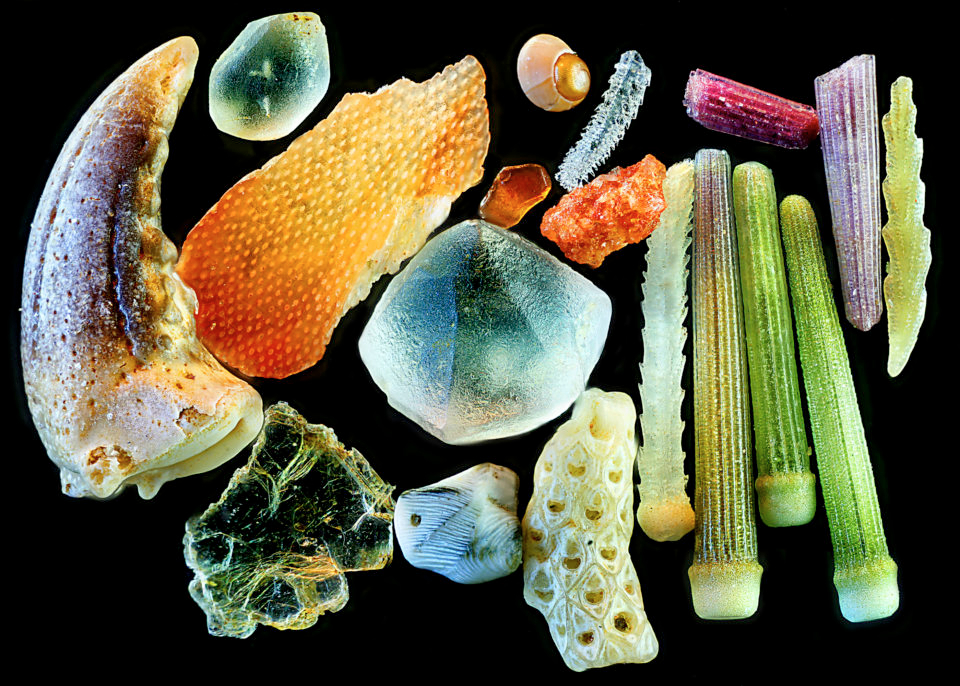Small Data is Beautiful: Analytics, Art and Narrative

IMAGE CREDIT: MAUI SAND GRAINS ARRANGEMENT #2) Dr Gary Greenberg, sandgrains.com
Due to ongoing uncertainties in the Covid19 pandemic, this event will now be held online on Friday 18th & Saturday 19th February 2022.
Download the program here or view on Eventbrite.
The Australian Cultural Data Engine, the Narrative Network and the Digital Studio in the Faculty of Arts in partnership with the Victorian College for the Arts at the University of Melbourne are excited to host this interdisciplinary symposium which seeks to nurture and advance our understanding of small data that involves human-scale analyses, thinking about aesthetics, and exploring how narratives emerge from data patterns and their anomalies.
The Organising Committee at Melbourne includes Dr Tyne Sumner (SCC), Dr Signe Ravn (SSPS), Dr Danny Butt (VCA), Dr Ashley Barnwell (SSPS) and Professor Rachel Fensham (SCC)
We are excited to announce confirmed keynote speakers:
-
Professor Katherine Bode (ANU)
Author of A World of Fiction: Digital Collections and the Future of Literary History (Michigan 2018)
Too big, too small: how scale matters
In an era in which big data is involved in so many bad things (from manipulating our social interactions and spending habits to perverting elections and killing would-be-but-not-terrorists) small data can seem intrinsically critical and ethical. Yet opposing small data to big - much like valorising big data in general - invests in a scalar imagining of the world as integrated and aligned. Exploring some arguments about the nonscalability of things, I suggest possibilities for understanding scale not as a variable means of investigating literary phenomena, but as invariably part of what is and can be found.
-
Professor Roopika Risam (Salem, US)
Author of The Digital Black Atlantic (Minnesota 2021)
Small Data as Resistance
At a moment where the sheer scale of data is staggering, how can approaches to digital humanities projects that use small data sets serve as a form of resistance? This talk uses the project Torn Apart/Separados to articulate how small data sets can be mobilized to produce new knowledge in response to social inequities. It further proposes that in times of austerity and scarcity of resources, small data sets have a crucial role to play in promoting equity and justice in the digital cultural record.
-
Professor Lisa Blackman (Goldsmiths, London)
Author of Haunted Data: Affect, Transmedia, Weird Science (Bloomsbury 2019)
The Haunting Qualities of Small Data: Mining the potential of errors, redactions, deviations, dead ends, and foreclosures
This lecture will explore some of the methodological and ethical potentials of working with small data and its generative potential within the context of hauntological approaches to the present. Developing the concept of haunted data, Lisa will give an overview of the project that was developed to explore small data in their book, Haunted Data: Affect, Transmedia, Weird Science, (2019, Bloomsbury). Taking a speculative approach to small data, Lisa will show how all data, big and small is probabilistic and future-oriented, drawing attention to the often displaced tactics through which data is shaped, produced, and made to circulate as a particular kind of object. Taking these tactics as important source material, the lecture will explore the value of errors, redactions, deviations, dead ends and foreclosures to analysing small data and its historialities.
-
Rowan McNaught (Melbourne)
Artist and publisher of artworks, software, anthologies, documentation, secrets and correspondence (Darpa press)
‘Darpa press: tending towards zero’
Darpa Press is an artists publishing endeavour, established in 2017. It is concerned with a certain uneconomic tradition of artists publishing, and an idea of art as an aesthetic technology contra to technology. Each of its publications recollects ways that the shared technical world of the Internet might have functioned otherwise.
In this presentation, and from my position as its secretary, I’ll reflect on a number of Darpa's works against the provocations of the conference. In particular, Darpa attempts to give shape to distinctly small modes of intersubjective circulation against the wider platformisation of the Internet, and establishes counterinductive techniques via works of art that remain hidden within mass technical protocols.
Description
Taking inspiration from the ‘small is beautiful’ mantra of the 1970s which provoked counter-cultural economic and scientific expertise in the name of planetary survival, this symposium invites scholars working on computational methods in the arts, humanities and social sciences to discuss their research with ‘small data’.
Big data is often characterised by the volume, speed and aggregation made possible by automated and intensive computational systems, and over the last decade, data scraping methods and ‘large N’ studies have become dominant trends in socio-cultural digital research. Conversely, small data may be characterised by their limited volume or greater diversity of anomalous patterns, case studies, and research collected manually to answer specific questions.
This concept of “small is beautiful” has a distinctive history and place in the humanities and creative arts, producing specific (if not unique) works and critical commentary in archives tied to the authorial or artistic signature. From a social science perspective, small data may be associated with some forms of qualitative methods, marginalia, ephemera, data that ‘glows’ or narrative analysis of ‘small stories’. Moreover digital platforms with readily accessible technologies are recomposing scale in unprecedented ways. Such approaches give rise to new possibilities for mass circulation of intimate gestures and the affordances of transnational and first person voices that may not identify with colonising structures or professional institutions of art, culture and political organisation.